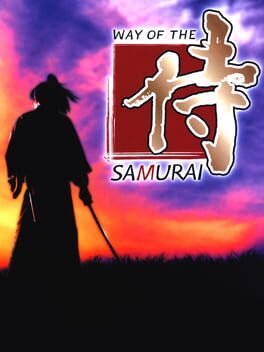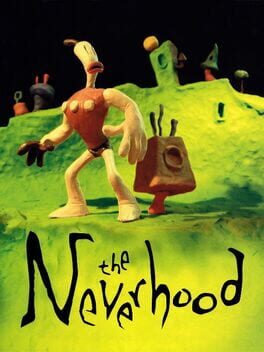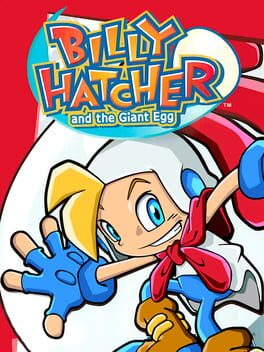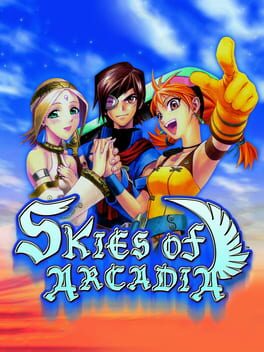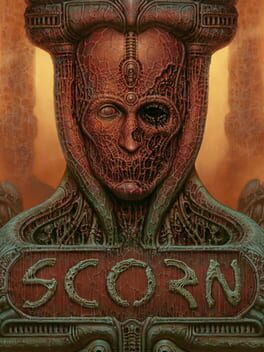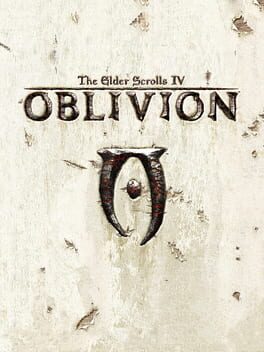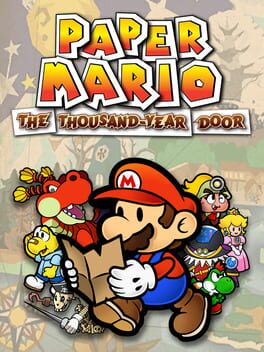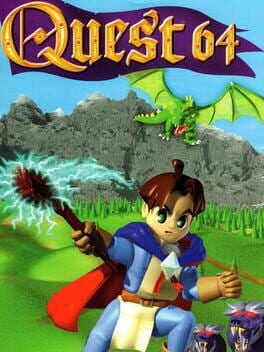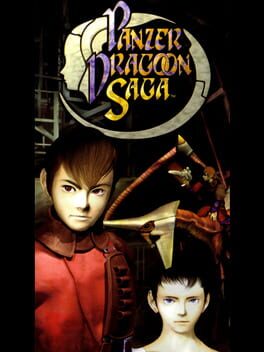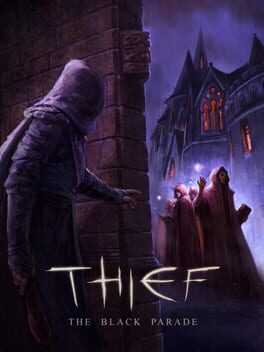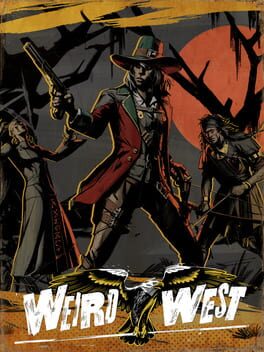MidnightTV
61 Reviews liked by MidnightTV
Way of the Samurai
2002
cowards use this website and give games like this a 3.5 like they are Protectors of videogaminges Honour. they will say things like this game is 'empty' and 'short' but then also say it is 'slow'. these people are full of stuff and nonsense. this game is a 5 STAR PS2 BANGER
the game is an artfully arranged series of story events that can be experienced in sequence, and each plotline can be followed from location to location allowing to to influence it OR NOT. one of the many brilliant facets of this games genius is thst all of these plots will culminate whether you choose to be a part of them OR NOT. there is a genre tag on steam called "choices matter". ostensibly choices matter to gamers, but it seems to me that the silk-bibbed gamer babies would prefer that their choices be presented as options on a dinner menu, chosen and then having the expected outcome served on a plate. WAY OF THE SAMURAI IS BETTER THAN THAT. in this game your choices matter in the way our human life Choices matter: they dont, but we make em anyway and consequences rattle out of the series of boxes and switches we futz with all day. you will fuck around too much and get killed by a bald weirdo. you may end up facing down a line of cannons with this cum-inflated bimbo. you may have to protect an innocent babe on a smoky battlefield.........
the thing is, this game is also super fun to play. the strikes have that weight to them that the modern souls fans love. big chunky sword slaps that send ketchup-thick gouts of blood flying everywhere. and its chock full of weapons all with their own move sets! and you unlock new moves by figuring "hey i bet this works", and sometimes it does! and it has this like, quasiroguelike quality where you can end your run early to store some good swords you found.....because you lose em if you die. you can even do goony shit like having aforementioned blacksmith bbygirl fix up your shit to the next level, not pay him, kill his ass, and restart! with your Next Level $hit!!
the map is small, but easy to memorize. the environments may look a little rudimentary, but they are also easily navigable especially when fights break out. to me, these aspects compliment the core Loop of memorizing where and when different events occur and Yojimbo'ing your way to different endings. i think its fair to criticize the story as being moderately generic and a rip off of a movie.....but all video game stories were rip offs of movies back then. it was the style at the time. i dont think its really fair to knock it for that when people still to this day claim Alan Wake is Good.
ultimately, i think this game is genuinely top 20 on the system. a Legit action classic. future games om the series are worth a look, but to me it never hit the lofty heights of this shit. its the video game equivalent of the best song you ever heard under 2 minutes long. meant to be looped on your tv and In Your Head
the game is an artfully arranged series of story events that can be experienced in sequence, and each plotline can be followed from location to location allowing to to influence it OR NOT. one of the many brilliant facets of this games genius is thst all of these plots will culminate whether you choose to be a part of them OR NOT. there is a genre tag on steam called "choices matter". ostensibly choices matter to gamers, but it seems to me that the silk-bibbed gamer babies would prefer that their choices be presented as options on a dinner menu, chosen and then having the expected outcome served on a plate. WAY OF THE SAMURAI IS BETTER THAN THAT. in this game your choices matter in the way our human life Choices matter: they dont, but we make em anyway and consequences rattle out of the series of boxes and switches we futz with all day. you will fuck around too much and get killed by a bald weirdo. you may end up facing down a line of cannons with this cum-inflated bimbo. you may have to protect an innocent babe on a smoky battlefield.........
the thing is, this game is also super fun to play. the strikes have that weight to them that the modern souls fans love. big chunky sword slaps that send ketchup-thick gouts of blood flying everywhere. and its chock full of weapons all with their own move sets! and you unlock new moves by figuring "hey i bet this works", and sometimes it does! and it has this like, quasiroguelike quality where you can end your run early to store some good swords you found.....because you lose em if you die. you can even do goony shit like having aforementioned blacksmith bbygirl fix up your shit to the next level, not pay him, kill his ass, and restart! with your Next Level $hit!!
the map is small, but easy to memorize. the environments may look a little rudimentary, but they are also easily navigable especially when fights break out. to me, these aspects compliment the core Loop of memorizing where and when different events occur and Yojimbo'ing your way to different endings. i think its fair to criticize the story as being moderately generic and a rip off of a movie.....but all video game stories were rip offs of movies back then. it was the style at the time. i dont think its really fair to knock it for that when people still to this day claim Alan Wake is Good.
ultimately, i think this game is genuinely top 20 on the system. a Legit action classic. future games om the series are worth a look, but to me it never hit the lofty heights of this shit. its the video game equivalent of the best song you ever heard under 2 minutes long. meant to be looped on your tv and In Your Head
A masterpiece that only came to exist as distinctive and disturbing as it is due to the brutal conditions and specific time of gaming history it was made in. To this day Aonuma feels ashamed of it and doesn't understand the love, and it really shows in the 3DS version. MM remains the best example of efficient asset reuse ever. Despite sharing so much with its predecessor it couldn't feel more different, pushing the hardware much further running every event on a real time schedule, and also challenging the player more. You just have to do all the side content to get the full experience and fully appreciate how detailed, varied and interconnected Termina and its characters are. My appreciation for the game has grown more and more over the years to the point I don't care about its shortcomings anymore. Unquestionably in the upper echelon of the Zelda series and Nintendo games in general.
The Neverhood
1996
Skies of Arcadia
2000
Scorn
2022
Scorn is an uneven balance of Riven-like alien techno-puzzling and atmospheric existential horror akin to SOMA. The art is a perfect amalgamation of Giger & Beksiński, fleshy organic architecture amassed across the surface of a dying world. The first two-thirds present particularly engaging core puzzles, as you slowly unpick the purpose of the machines you are revving up, often leading to some sort of sacrifice of an innocent(?) being (ranging from tiny weird guys to enormous weird guys) in this abject world. The wordless communication of the narrative through exploration, the environment & your ritualistic puzzling is refreshing (in a time where many games won't. shut. up).
The alien life wandering the flesh-corridors are alluring at first, with some interesting behaviours ambivalent to, & decentering, the player. But their placement and the very awkward feeling combat generates annoyance rather than tension, a very clumsy implementation of what was probably envisioned as a ‘living’ world but grew smaller in scope as they struggled to bring this to release. This is most evident in the very dull final chapter where a (puzzle) boss and most puzzles are solved with blunt-force explosives. Despite my final impressions, Ebb has a really strong foundation here and I look forward to seeing how they grow.
The alien life wandering the flesh-corridors are alluring at first, with some interesting behaviours ambivalent to, & decentering, the player. But their placement and the very awkward feeling combat generates annoyance rather than tension, a very clumsy implementation of what was probably envisioned as a ‘living’ world but grew smaller in scope as they struggled to bring this to release. This is most evident in the very dull final chapter where a (puzzle) boss and most puzzles are solved with blunt-force explosives. Despite my final impressions, Ebb has a really strong foundation here and I look forward to seeing how they grow.
The trajectory of The Elder Scrolls - from rough freeform complexity to polished, restrictive 'streamlining', reached a magical balance with Morrowind. But the release of Oblivion began their descent towards the latter end, of guided storytelling, less complex RPG mechanics, fully-action combat and lush environments, i.e. towards greater mass appeal. Like its predecessor, much of the intrigue is owed to its playstyles. This time it's the leveling system that influences gameplay, and in particular their major/minor skills, of which only the former awards level EXP. When played normally (as in: selecting the right major skills for one's intended build), the experience suffers from oppressive level-scaling and chronically weak combat. When played in reverse (as in: by assigning seldom-used talents as major skills), the player is faced with an oddly accommodating RPG. Morrowind had balanced this by way of dice rolls, which made building low-level misc skills (here known as minor skills) especially difficult without a trainer. Their absence this time around allows one to easily hone talents regardless of the character's class, and even stay at level 1 for hundreds of hours (although exempted from major quests and stuck with lesser treasure). It's yet another exploit-prone system, but the exploit's effect on gameplay is unusual: Players level up with complete agency and ideally when prepared to increase the difficulty & loot. As skills improve, the attribute bonuses of old lead to carefully-sculpted builds reminiscent of Pokemon's EV-training.
Acrobatics (or regular jumping in general) replaced jump spells as the alternative means of world traversal, now equipped with much better air control that - at high levels, turns areas into quasi-platformer stages (with potential to sequence-break dungeons). The rest is a mixed bag that's heavier on the negatives: Features such as spellmaking and enchanting are tidied up and locked behind quests. Weapons lack feedback despite removing skill-based hit chance. The icon compass and a return to fast-travel-from-anywhere detract from the sense of discovery. And finally the inclusion of voiced dialogue (more than a line or two) indirectly reduces the quality of writing, but that does little to hurt their scenario-building.
Acrobatics (or regular jumping in general) replaced jump spells as the alternative means of world traversal, now equipped with much better air control that - at high levels, turns areas into quasi-platformer stages (with potential to sequence-break dungeons). The rest is a mixed bag that's heavier on the negatives: Features such as spellmaking and enchanting are tidied up and locked behind quests. Weapons lack feedback despite removing skill-based hit chance. The icon compass and a return to fast-travel-from-anywhere detract from the sense of discovery. And finally the inclusion of voiced dialogue (more than a line or two) indirectly reduces the quality of writing, but that does little to hurt their scenario-building.
Revisiting this almost 20 years later from when I first played it as a kid, and I'll be honest?
Ain't vibin' with this one, chief.
The soundtrack and visuals are top notch, and the battle system is genuinely more engaging than the first game. However, the writing feels VERY early 2000s with a lot of one-off gimmick characters who don't add much to overall plot. Also the very stale progression of going to point A to point B, backtracking to A to go to point C is pretty grating for me.
It's a neat game if you don't mind a lot of surface level style, but I prefer something with a little more meat to it or understanding that keeping things simple is sometimes just better. I'll stick to the original Paper Mario and that's perfectly fine with me.
Ain't vibin' with this one, chief.
The soundtrack and visuals are top notch, and the battle system is genuinely more engaging than the first game. However, the writing feels VERY early 2000s with a lot of one-off gimmick characters who don't add much to overall plot. Also the very stale progression of going to point A to point B, backtracking to A to go to point C is pretty grating for me.
It's a neat game if you don't mind a lot of surface level style, but I prefer something with a little more meat to it or understanding that keeping things simple is sometimes just better. I'll stick to the original Paper Mario and that's perfectly fine with me.
Quest 64
1998
Imagineer coined a uniquely minimal (level-less, item-limited, currency-less and party-less) form of JRPG with Quest 64, whose light storytelling, vast 3D areas and day/night cycles brought them closer to computer-RPGs than to its console-born siblings. What is undoubtedly CRPG-like - however, is their flexible upgrade system. Stat-leveling in the vein of FFII (i.e. earned from various parts of combat) is joined by collectible skill points distributed between 4 elements (which unlock new spells of that type and increase their power). Their combinations - from balanced spreads to a dual-type hyperfocus, governs the player's build with their own merits and limits. That sense of freedom well-complements their turn-based battles; seamless, responsive on-map gameplay with confined movement/dodging that's heavy on the spellcasting, reined in a little by elemental weaknesses and resistance. These two features rescue a work that otherwise would be dull and clumsy, as its lengthy overworld & dungeons plus a general dearth of content (other than a handful of pickups) make for some patience-testing trips. As a result, gameplay oscillates between moments of snappy, entertaining semi-action and sheer torture.
This brief project is many things at once, and - depending on taste, some conclusions are more prominent than others: A few great ideas placed on weak foundations. A half-baked mess. An interesting compromise between action & tactical gameplay. A novel fusion of Western/J-RPG languages, or even a grim omen of their genre's future; of the overscaled, empty worlds that progressively defined the next generation onwards. At the very least - though, a fascinating artifact of its era.
This brief project is many things at once, and - depending on taste, some conclusions are more prominent than others: A few great ideas placed on weak foundations. A half-baked mess. An interesting compromise between action & tactical gameplay. A novel fusion of Western/J-RPG languages, or even a grim omen of their genre's future; of the overscaled, empty worlds that progressively defined the next generation onwards. At the very least - though, a fascinating artifact of its era.
Panzer Dragoon Saga
1998
god motherfluffing damn, they knocked it out of the park with this. everything good about the previous panzer dragoon games was amped up here, nothing is lost in the translation to an RPG. the story is beautiful, the combat feels awesome and fitting, and i gotta say it has one of the best endings of any game. absolute classicccccccccc
At some point in the future, I really ought to write a great deal more about this duology, but having just completed my revisit I wanted to voice my initial thoughts. Whether or not I prefer certain aspects of Ocarina to this game, whether or not I resonated with one half more than the other, or whatever other gripes and nitpicks I have - as a conclusive, consecutive whole piece, that is both halves of this duology combined, I believe the Nintendo 64 Zelda duology very well may be Nintendo's magnum opus.
The Ocarina pairing carry themselves with a certain sophistication and solemness rarely felt in the company's other titles. What I felt these games have to say about the passing of time, of childhood innocence warped and cast aside, the process of growing up and the relationships, expressions and experiences that carry us through to adulthood... that's the sort of magic that this group of creatives was capable of in this era. The sort of knowing adoration poured into this duology, into Mario 64 and into MOTHER2. It's Nintendo at their absolute peak, and I don't want to get into my displeasure with the company as they stand and have stood for years now here... I simply want to commend them and express my gratitude for this two-headed beast, this totemic work of human expression they took the Nintendo 64 to its limits to produce. I'm not the Nintendo fan I was as a kid... far from it. But during those moments in Ocarina and Majora... yeah. I believe.
The Ocarina pairing carry themselves with a certain sophistication and solemness rarely felt in the company's other titles. What I felt these games have to say about the passing of time, of childhood innocence warped and cast aside, the process of growing up and the relationships, expressions and experiences that carry us through to adulthood... that's the sort of magic that this group of creatives was capable of in this era. The sort of knowing adoration poured into this duology, into Mario 64 and into MOTHER2. It's Nintendo at their absolute peak, and I don't want to get into my displeasure with the company as they stand and have stood for years now here... I simply want to commend them and express my gratitude for this two-headed beast, this totemic work of human expression they took the Nintendo 64 to its limits to produce. I'm not the Nintendo fan I was as a kid... far from it. But during those moments in Ocarina and Majora... yeah. I believe.
Weird West
2022
Discovering that Weird West is kinda jank is like learning that Snoop Dogg smokes weed. Like, no fucking way, the new, ambitious, semi-indie immersive sim/WRPG thing from the co-founder of Arkane is a bit rough? I'd almost be dissapointed if it wasn't.
Ambition is the real kicker here, and probably the game's greatest issue. Weird West is a reasonably short game but it's also vast, with dozens of locations, and it's also going for telling 5 character's stories, each of which with their own set pieces and locations and artwork. Barring a dev cycle that lasted until the heat death of the universe, something has to give, and it does.
There's just a real lack of stuff in Weird West. I appreciate that its a relatively short game, but even if you're rushing only the main quest, it's lack of breadth in nearly every department is stark. There's a real element of every area feeling like a procgen version of each other, with one template for town, dungeon, temple and fields put on different floor textures - with every story gets basically one location each that feels hand-made. Combat, whilst actually fairly fun and certaintly above most WRPGs, quickly becomes repetitive. Each character gets only 4 unique skills on top of about 20 shared ones, which only in the werewolf campaign feel very different - and otherwise behave mostly identical. Random events across the west get quite repetive to the end, and sidequests of any substance are extremely limited.
But again, if you're signed up for Weird West, if you know the context - you were probably expecting something along those lines. But the story and the worldbuilding will be good, there'll be some really cool shit to make up for it, the quest design will be great or something - right?
And there is, but there is a twist in the tale, and in my opinion it's what makes Weird West a game I think could be very divisive. Normally, good Western RPGs with a similar smorgasboard of problems actually make sure to do all they can to make sure you don't just miss the good stuff. Take New Vegas, a game that despite being ostensibly open world, funnels you in a general direction and makes most of it's really good questlines cross your path at some point or another.
Meanwhile, if you follow the path of least resistance in Weird West, do everything you're told to and keep an eye on that objective marker, you will have probably the most miserable time possible. You will experience the least interesting versions of the stories available, have the worst gameplay experience, because it'll all be pretty basic and the game wont really be responding to what you do.
To get the juice out of Weird West you need to squeeze it. Mess with the narratives, do weird shit like kill your husband for no reason, make vendettas, truly test how far you can push the narrative and choices until the game stops you. Usually, it'll go further than you think, and it's great. The game in general is extremely good at giving the player's actions long term consequences, both in major story decisions and in gameplay ones. Even in the next life, the actions of previous characters resonate through the west, leaving a world changed, be it in the ghost towns, or the peoples in it. This stuff is fantastic, especially as the events and people of the world itself is interesting - so getting to influence it in a noticeable manner that you get to interact with is satisfying.
Gameplay also benefits greatly from throwing a spanner into the works. Whilst the core systems are pretty basic - it's twin stick shooter with some stealth elements and skills basically - things like environmental effects, third party enemies/wildlife, friendly fire and such add up to make a system that quickly descends into chaos, which is where it thrives. Going into NPCs estate to negotiate for a thing, failing, deciding to steal it, getting caught and then quickly getting involved in a fireight that leads to a dozen dead, including the mayor and the rest of your posse, with you having gained a bounty and a vendetta - that's a good encounter. And when those posse members can be major NPCs, and these encounters can significantly change the world, it makes rolling with the chaos massively enjoyable and unpredictable. It helps that the flat out gunfights where everything is on fire is by far the best way to get fun out of the gameplay.
When the game's played like this - wild and chaotic - the world of weird west, story and gameplay and world, integrate so well. Far gone from those ten UE Marketplace assets placed over the map 90 times, it becomes a thick, cruel world, where death lies around every turn, stories come from nothing and the supernatural wraps around it all like a thorny rose.
The game ends well, to boot, with a satisfying conclusion that answers the right questions, even if the final Oneirist story is probably the weakest without it. And again, at about 12-15 hours, it knows when to end.
But you have to put your own effort in, and possibly stretch your sense of disbelief a bit, for it to work. And I think it is perfectly reasnable for the game's myriad problems to really not make that worth it for many. Hell, I myself am not really sure how to score or truly think about it, and i'm a veteran of enjoying kusoge through it's faults.
Ultimately it's miles better than anything Arkane have put out since dark messiah, and probably the best Western RPG since New Vegas - if you can put the legwork in to get the juice.
Ambition is the real kicker here, and probably the game's greatest issue. Weird West is a reasonably short game but it's also vast, with dozens of locations, and it's also going for telling 5 character's stories, each of which with their own set pieces and locations and artwork. Barring a dev cycle that lasted until the heat death of the universe, something has to give, and it does.
There's just a real lack of stuff in Weird West. I appreciate that its a relatively short game, but even if you're rushing only the main quest, it's lack of breadth in nearly every department is stark. There's a real element of every area feeling like a procgen version of each other, with one template for town, dungeon, temple and fields put on different floor textures - with every story gets basically one location each that feels hand-made. Combat, whilst actually fairly fun and certaintly above most WRPGs, quickly becomes repetitive. Each character gets only 4 unique skills on top of about 20 shared ones, which only in the werewolf campaign feel very different - and otherwise behave mostly identical. Random events across the west get quite repetive to the end, and sidequests of any substance are extremely limited.
But again, if you're signed up for Weird West, if you know the context - you were probably expecting something along those lines. But the story and the worldbuilding will be good, there'll be some really cool shit to make up for it, the quest design will be great or something - right?
And there is, but there is a twist in the tale, and in my opinion it's what makes Weird West a game I think could be very divisive. Normally, good Western RPGs with a similar smorgasboard of problems actually make sure to do all they can to make sure you don't just miss the good stuff. Take New Vegas, a game that despite being ostensibly open world, funnels you in a general direction and makes most of it's really good questlines cross your path at some point or another.
Meanwhile, if you follow the path of least resistance in Weird West, do everything you're told to and keep an eye on that objective marker, you will have probably the most miserable time possible. You will experience the least interesting versions of the stories available, have the worst gameplay experience, because it'll all be pretty basic and the game wont really be responding to what you do.
To get the juice out of Weird West you need to squeeze it. Mess with the narratives, do weird shit like kill your husband for no reason, make vendettas, truly test how far you can push the narrative and choices until the game stops you. Usually, it'll go further than you think, and it's great. The game in general is extremely good at giving the player's actions long term consequences, both in major story decisions and in gameplay ones. Even in the next life, the actions of previous characters resonate through the west, leaving a world changed, be it in the ghost towns, or the peoples in it. This stuff is fantastic, especially as the events and people of the world itself is interesting - so getting to influence it in a noticeable manner that you get to interact with is satisfying.
Gameplay also benefits greatly from throwing a spanner into the works. Whilst the core systems are pretty basic - it's twin stick shooter with some stealth elements and skills basically - things like environmental effects, third party enemies/wildlife, friendly fire and such add up to make a system that quickly descends into chaos, which is where it thrives. Going into NPCs estate to negotiate for a thing, failing, deciding to steal it, getting caught and then quickly getting involved in a fireight that leads to a dozen dead, including the mayor and the rest of your posse, with you having gained a bounty and a vendetta - that's a good encounter. And when those posse members can be major NPCs, and these encounters can significantly change the world, it makes rolling with the chaos massively enjoyable and unpredictable. It helps that the flat out gunfights where everything is on fire is by far the best way to get fun out of the gameplay.
When the game's played like this - wild and chaotic - the world of weird west, story and gameplay and world, integrate so well. Far gone from those ten UE Marketplace assets placed over the map 90 times, it becomes a thick, cruel world, where death lies around every turn, stories come from nothing and the supernatural wraps around it all like a thorny rose.
The game ends well, to boot, with a satisfying conclusion that answers the right questions, even if the final Oneirist story is probably the weakest without it. And again, at about 12-15 hours, it knows when to end.
But you have to put your own effort in, and possibly stretch your sense of disbelief a bit, for it to work. And I think it is perfectly reasnable for the game's myriad problems to really not make that worth it for many. Hell, I myself am not really sure how to score or truly think about it, and i'm a veteran of enjoying kusoge through it's faults.
Ultimately it's miles better than anything Arkane have put out since dark messiah, and probably the best Western RPG since New Vegas - if you can put the legwork in to get the juice.
